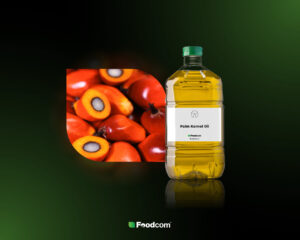- Indonesia is one of the world’s leading palm oil producers and is looking to increase its palm oil production in the coming years.
- There are reports of illegal palm oil plantations in the country being established on deforested protected land.
- Illegally sourced palm oil may have found its way to leading global producers such as Nestle and P&G.
Palm oil production in Indonesia and deforestation
Palm oil is emerging as the world’s leading edible oil. Its production has increased significantly over the past decade, now accounting for 60% of global vegetable oil exports. Indonesia and Malaysia are the main producers. Palm oil is used both for food purposes – cooking or chocolate making – and in cosmetics, as well as for biofuel production. Currently, lower oil prices make palm oil a less attractive option for biodiesel production. Nevertheless, Indonesia is aiming to increase palm oil production for this very purpose.
Rainforest Action Network, an organisation that aims to protect forests, highlighted increased deforestation in Indonesia’s Rawa Singkil Nature Reserve in a report. The country claims that the rate of deforestation has decreased, but RAN reports from satellite imagery that it is increasing in protected areas, with oil palm seedlings expected to appear in deforested areas. RAN is paying particular attention to a nature reserve in the Aceh province of the Indonesian island of Sumatra, which has lost 2609 hectares of forest since 2016. 645 hectares of the area are now planted with palm trees. Indonesia’s agriculture ministry refrains from commenting.
Nestle and P&G respond to reports of palm oil illegality
There are reports that palm oil sourced from plantations established on illegally cleared nature reserve land may have found its way into the supply chains of brands such as Nestle and P&G (Procter & Gamble). Manufacturers are investigating and suspending supplies from suspicious sources. In September and October, a RAN investigation was underway and found that fresh fruit from illegal plantations was being sold to brands such as Global Sawit Samesta (GSS) and Aceh Trumon Anugerah Kita (ATAK), which supplied palm oil to world-class manufacturers such as Nestle, P&G, Mondelez and PepsiCo. The brands point out that they are opposed to this origin of palm oil. Nestle says that by the end of 2023, 96% of their supply will have come from plantations that have not been created by deforestation. Leading brands are investigating the origin of the latest batches of palm oil, suspending supplies from SSE and ATAK.

![Illegally sourced palm oil found its way into the production of big brands [World News] Illegally sourced palm oil found its way into the production of big brands [World News]](https://foodcom.pl/wp-content/uploads/2023/09/Foodcom_World_News_Industrials-1520x760.jpg)


![Belarus announces reduction in potash production – already seeing consequences [World News] Belarus announces reduction in potash production – already seeing consequences [World News]](https://foodcom.pl/wp-content/uploads/2023/09/Foodcom_World_News_Global-600x300.jpg)
![Using acid whey in functional preparations – a new way to process dairy waste [World News] Using acid whey in functional preparations – a new way to process dairy waste [World News]](https://foodcom.pl/wp-content/uploads/2023/09/Foodcom_World_News_Industrials-600x300.jpg)
![Dextrose market faces crisis and price rise [World News] Dextrose market faces crisis and price rise [World News]](https://foodcom.pl/wp-content/uploads/2023/09/Foodcom_World_News_Global_Stock-600x300.jpg)

